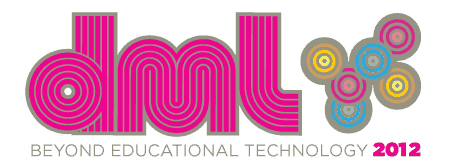MRT: Making MakeShop: Designing Making Experiences with Families
Children’s Museum of Pittsburgh has partnered with Carnegie Mellon’s Entertainment Technology Center (ETC) and the University of Pittsburgh Center for Learning in Out of School Environments (UPCLOSE) to create MakeShop, a space within the Children’s Museum dedicated to nurturing and furthering informal learning opportunities and research-based understanding at the intersection of the digital and the physical. As a collaborative project among the fields of research, design and practice, MakeShop is a laboratory for curiosity, creativity, exploration, and innovation that is focused on providing kids, and their families, interest-driven, hands-on learning experiences.
MakeShop is a new 1800 square foot, permanent exhibit in the Children’s Museum, staffed by a team of makers—crafters, inventors, hackers, educators and artists—with expertise in the areas of informal learning, sewing, woodworking, metals, electronics, interaction design and digital media. As a physical and conceptual expansion of the Museum’s philosophy “play with real stuff,” visitors to MakeShop engage in the process of designing, exploring, tinkering, sharing ideas, iterating and building with old and new technologies. Through this open-making experience, visitors are encouraged to investigate how things work, consider materials and techniques at play, and develop interests and valuable skills that may extend beyond their Museum experience.
MakeShop was conceived as space for the Museum’s “older” child, ages 8-12, who is developing fluency with emerging and traditional technologies, and might be inclined to engage in a deeper, sustained, and extendable informal learning experience with knowledgeable peers, parents and mentors.
Since the initial conception over a year ago, we have prototyped, reflected and refined our practice, consulting existing models to determine what works best for our audience and the kinds of learning made possible through their participation in this context.
As an organization focused on children and families, MakeShop targets a slightly younger child-demographic than popular models of new media-based creative spaces, such as Chicago’s YouMedia, as well as adult-centered maker- or “hack” spaces across the country. For this reason, the Museum must consider different intergenerational dynamics of participation with new media and traditional technologies. Such dynamics must reflect the possible roles, practices and attitudes of a wider range of child-participants, parents and family-units when establishing design principles and learning frameworks.
In this session, we will discuss our process of combining our areas of expertise—practice, design and research—to bring MakeShop to life. We will describe the iterative development of MakeShop, from initial idea to public prototyping to full-scale exhibit. This includes collaboration with kids and their families to help discover the affordances, challenges, and essential components for meaningful visitor experience. In addition, we will share our evolving framework for evaluation, which integrates elements of reflective practice and empirical study to determine a refined and evidentiary set of guiding principles of practice. Throughout, we will provide concrete examples of our process of designing making experiences with and for families.



